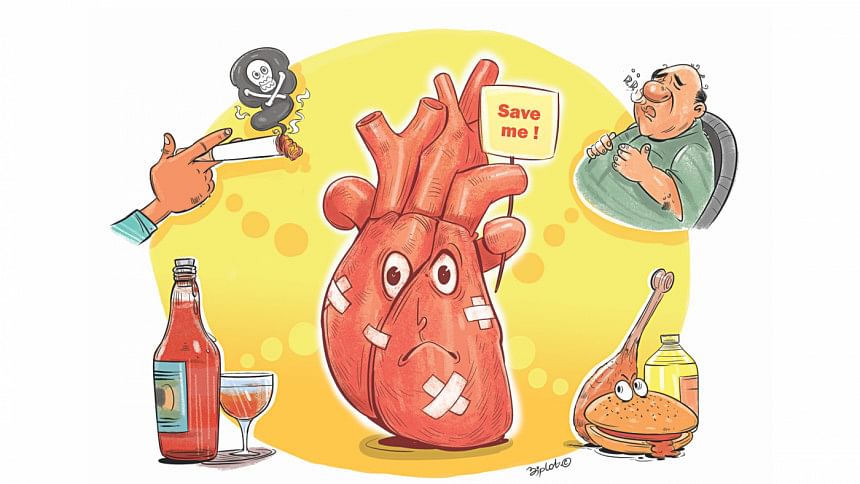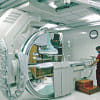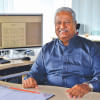Heart disease cases soaring in Bangladesh

Aktar Banu was treated for asthma for six months at a private hospital in Meherpur. Now, doctors are suddenly saying that she has heart disease. They carried out an echo test and informed that she needs to undergo a surgery to restore the function of her heart’s valves.
“Neither the doctors at Meherpur nor we realised the gravity of the problem,” Joy, 16, Aktar’s son, told The Daily Star.
The 38-year-old housewife from Gangni upazila was referred to National Institute of Cardiovascular Diseases (NICVD) in the capital. Physicians at the institute suggested her surgery be done immediately, and that she can do it either at NICVD or in a private healthcare facility. Her family opted for the second.
The family got another check-up done at a private hospital in Dhanmondi. Aktar’s surgery is likely to be carried out this week, he said.
Cardiovascular disease has become a cause of increasing concern for Bangladesh with patients suffering from it topping the list of people with non-communicable diseases.
In fact, the top cause of mortality, morbidity and hospital admission in the country is also cardiovascular disease, according to researchers.
Over the past few decades, thanks to epidemiological transition, the prevailing disease pattern in the country has changed from predominantly communicable to non-communicable diseases where heart disease contributes to the latter significantly, they said.
“Actually, cardiovascular diseases, especially coronary artery disease, are growing by epidemic proportions day by day,” said Dr Chaudhury Meshkat Ahmed, professor of cardiology department in Bangabandhu Sheikh Mujib Medical University (BSMMU).
In the last two decades, he said, relatively young people are being affected by heart diseases.
According to non-communicable disease risk factor survey 2018, some 15.5 percent of Bangladeshis, aged 40-69 years, are at risk of cardiovascular diseases.
There has been no survey to put a figure around the total number of cardiac patients in the country.
But according to the World Health Organisation, such patients accounted for 17 percent of total deaths in 2014 whereas nearly three decades earlier all non-communicable diseases together, including heart diseases, had been responsible for only eight percent of total mortality.
A NICVD 2018 study found that the prevalence of cardiovascular disease in Bangladeshis is 4.5 percent regardless of the type.
The study found that the prevalence rate is higher among people who lead an urban lifestyle.
“One in every four coronary care unit admission in hospitals in Middle Eastern countries are from this sub-continent. And Bangladesh is on the top among the countries of this sub-continent,” Prof Chaudhury Meshkat Ahmed told The Daily Star.
Treatment mostly Dhaka-centric
According to the latest data from Cardiac Surgeons Society of Bangladesh (CSSB), the country has only 36 cardiac care units in both public and private facilities.
Of those, 26 hospitals are equipped to conduct cardiovascular surgeries.
In Dhaka, the number of such hospitals is 20 (four public and 16 private) while there are three in Chattogram (one public and two private) and one each in Khulna and Sirajganj.
One of the hospitals, Zia Heart Foundation in Dinajpur, has not been functional since 2016 due to a shortage of surgeons and costs related to it.
According to CSSB, there are around 150 cardiac surgeons in the country. Of them, only 36 surgeons are capable of conducting surgery independently. Of these independent surgeons, 32 work in Dhaka.
Around 8,000 cardiac surgeries are done in those hospitals round the year.
In government facilities, the fees of surgery begin at Tk 1.10 lakh while the lowest fee that private hospitals take is around Tk 3.5 lakh.
From existing data and talks with a number of cardiologists and cardiac surgeons, The Daily Star learnt that the number of facilities is far less than what is necessary to cater to patients suffering from cardiac problems.
It is estimated that only 15 to 18 percent of total cardiac patients who need surgery are served in these surgery units, said Prof Rezwanul Hoque Bulbul, chair of the department of Cardiothoracic Surgery at BSMMU.
“Majority of the patients who need surgery remain outside the purview of service,” he told The Daily Star.
However, Prof Meshkat of BSMMU thinks around half of the surgeries could have been avoided through proper medication and change in lifestyle.
“Doctors in private facilities are usually forced to increase the number of angiograms,” he said.
Although several development measures have been taken in the cardiac healthcare industry, it is still not enough compared to the growing number of heart patients, said Prof Rezwanul.
Plan for ensuring healthcare at doorsteps failing
Over the past decades, Bangladesh has built a good network of primary, secondary and tertiary level healthcare establishments to provide primary and referral healthcare to its citizen.
However, mass people are not getting the benefits of it due to the “gaps in decision-making process” of the government.
As per the organogram, each upazila-level 50-bed hospitals will have one cardiologist out of 10 junior consultants. There are 248 such hospitals in the country, according to DGHS.
“You will not get any cardiologist in most of those hospitals. The government is increasing the number of medical colleges. This apparently good decision is causing vacancies on the opposite; hence hampering the efforts to achieve universal health coverage,” said public health specialist Dr Mohammad Abdus Sabur.
Sources said some cardiologists are now on special duty instead of staying at their workstations at the upazila level.
“There is no alternative to strengthening the capacity of the upazila health complexes to serve the mass people,” said Dr Sabur, also a health system specialist who teaches at Institute of Health Economics of Dhaka University.
Preventive measures are a must
Cardiologists said that the preventive measures like raising awareness, diverse diets and increase in physical activities must be stepped up in parallel to increasing curative facilities to prevent loss of lives.
They also said measures should be taken from the pre-birth stage of a child and they should be maintained throughout one’s lifetime.
“Maternal health, especially anti-natal check-up and meeting nutrition deficiency during maternal stage, is important to avoid vertical transmission of diseases. Counselling should begin from the grassroots level,” said Prof Rezwanul.
To diagnose non-communicable diseases early, school screening programmes, such as those undertaken by many countries, could be initiated.
“It would slow down the growing trend of heart diseases,” he added.

 For all latest news, follow The Daily Star's Google News channel.
For all latest news, follow The Daily Star's Google News channel. 







Comments